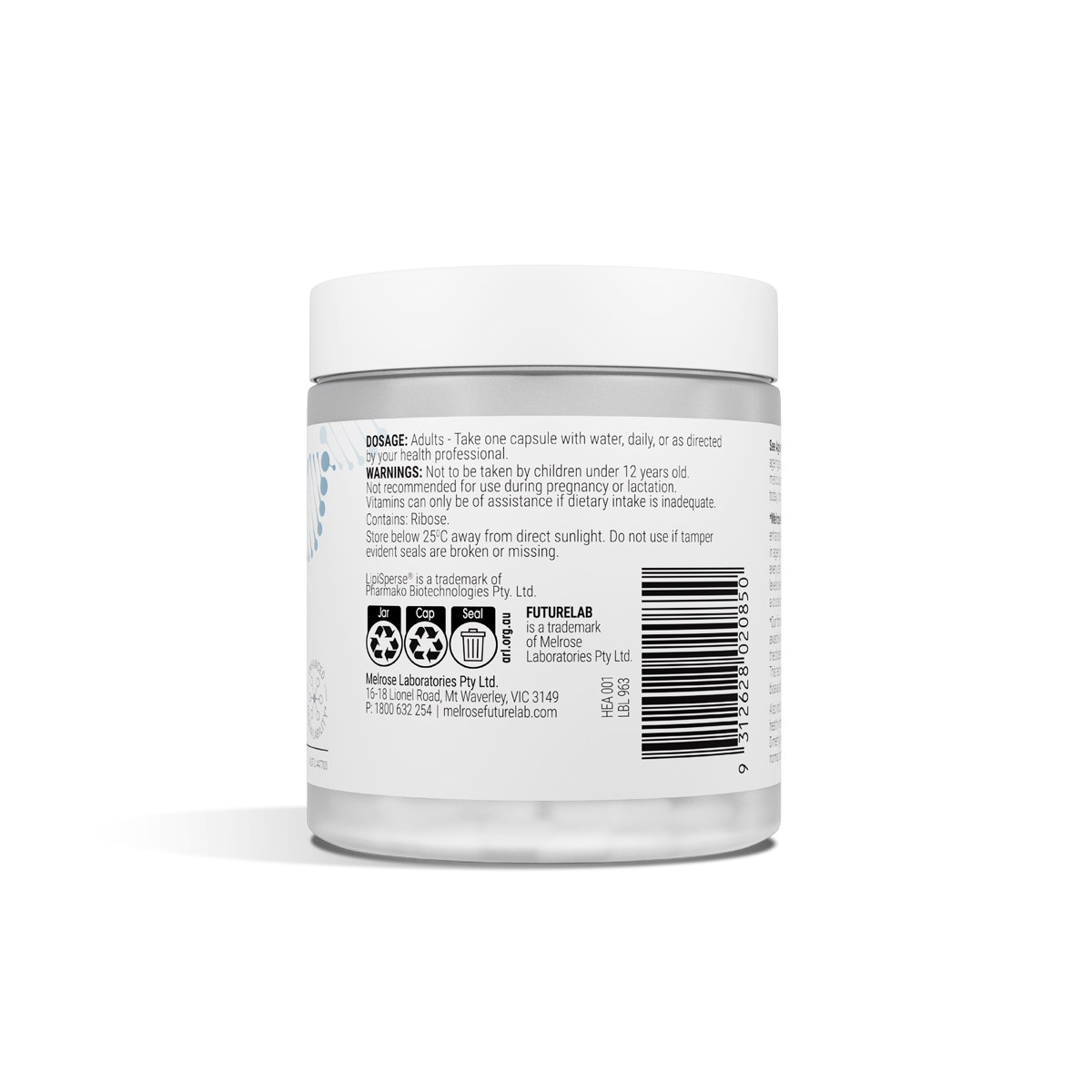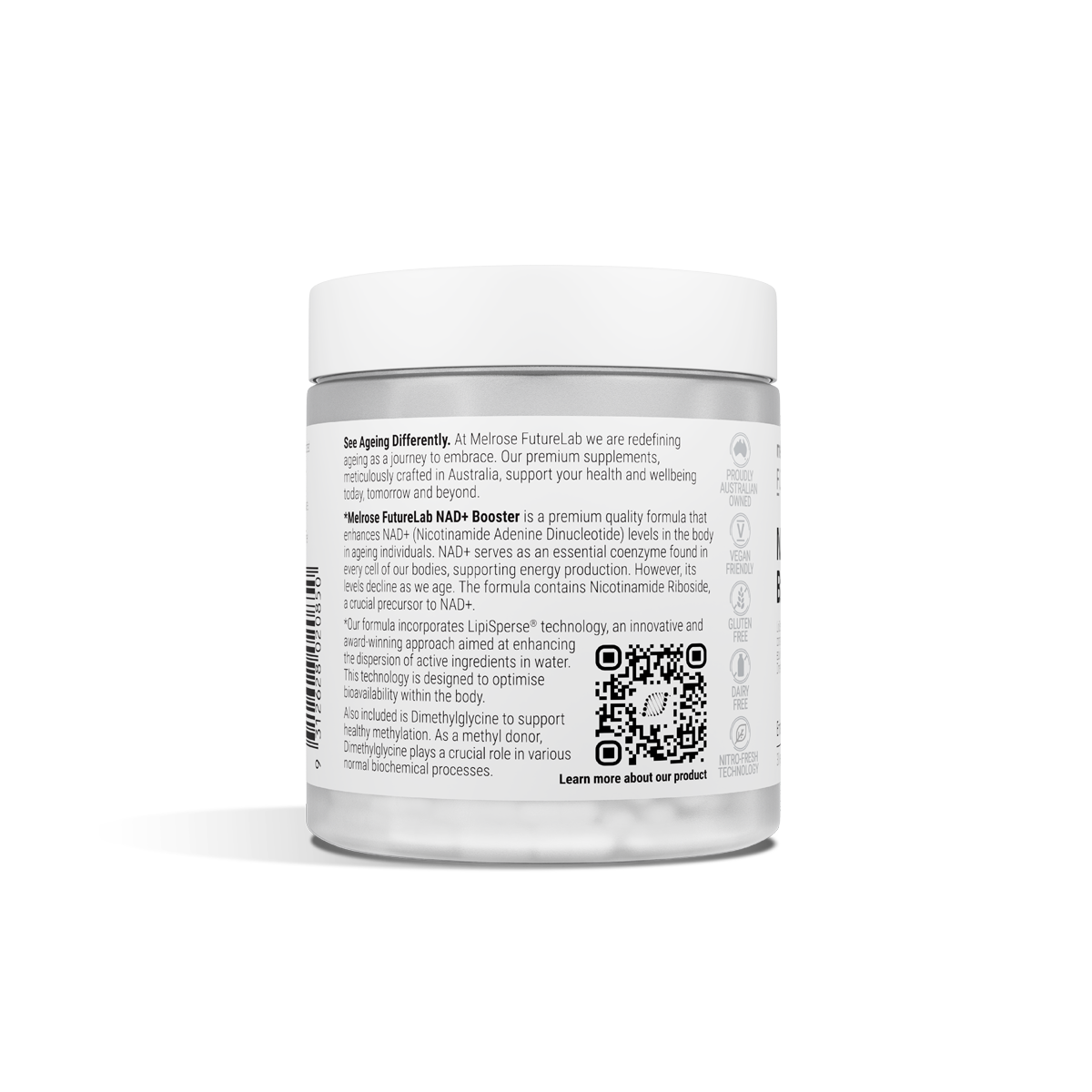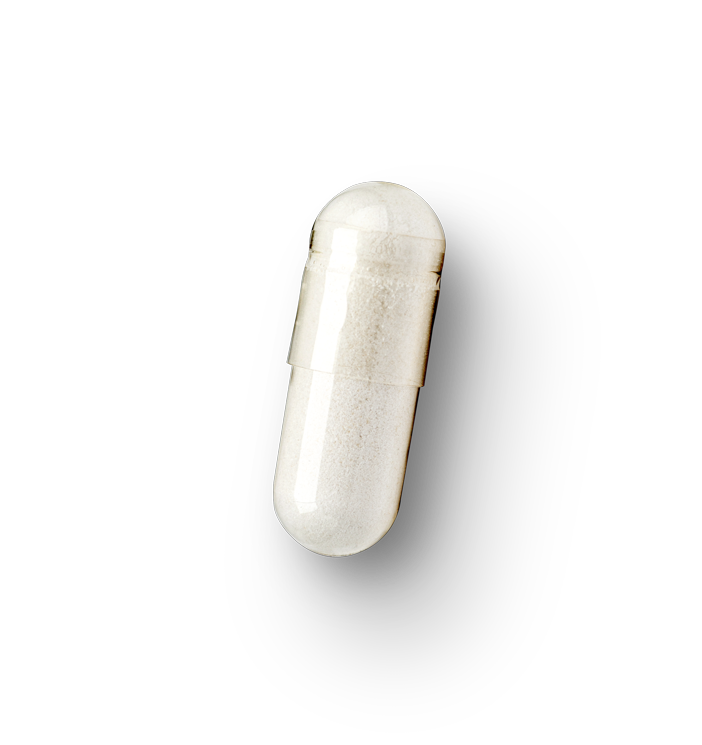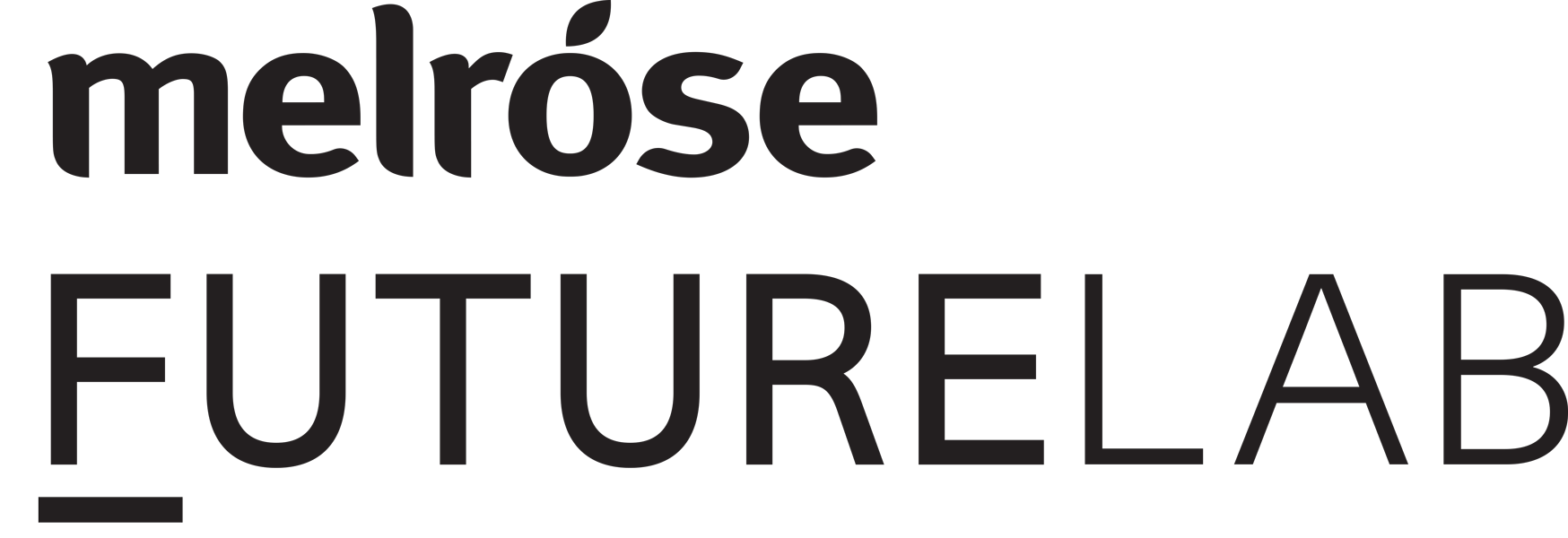


Supports Energy Levels & General Health
MELROSE FUTURELAB
NAD+ Booster
Only $1.83/Serving
30 Hard Capsules - 30 Day Supply
- Free Shipping Over $80
- Friendly Reminder Before Each Shipment
- Pause or Cancel Anytime
Always read the label and follow the directions for use. Read the warnings below.
Order now for delivery in 5-7 days.
What is NAD+ Booster?
A premium quality formulation developed to support NAD+ (nicotinamide adenine dinucleotide) levels in the body in older adults. The formula contains Nicotinamide Riboside, a crucial precursor to NAD+. Our formula incorporates LipiSperse® technology, an award-winning approach aimed at enhancing the dispersion of active ingredients in water. This technology is designed to optimise bioavailability within the body.
Ingredients
LipiSperse® NR 332.4 mg
containing Nicotinamide Riboside Chloride 300 mg
equiv. Ribose 137.7 mg
Dimethylglycine Hydrochloride 150 mg
Usage
Adults - Take one capsule with water, daily, or as directed by your health professional.
Warnings
LipiSperse® is a trademark of Pharmako Biotechnologies Pty. Ltd.
Not to be taken by children under 12 years old.
Not recommended for use during pregnancy or lactation.
Vitamins can only be of assistance if dietary intake is inadequate.
Contains: Sugar (Ribose).
Store below 25°C away from direct sunlight.
Do not use if tamper evident seals are broken or missing.
Shipping
Free shipping on all orders in Australia over $80.
All shipped goods will be delivered using Australia Post, with an eParcel tracking number applied to each order. Delivery time frame varies on your location. Orders processed may take 5-7 business days to arrive.


Energy Support as You Age
NAD+ serves as an essential coenzyme found in every cell of our bodies, supporting energy production as we age.
✓ Vegan
✓ Dairy Free
✓ Gluten Free
✓ Proudly Australian Owned
Ingredients List
Key Ingredients: Nicotinamide Riboside (NR) and Dimethylglycine (DMG)

What is Nicotinamide Riboside (NR)?
Nicotinamide Riboside (NR) plays a crucial role in supporting cellular health. It supports cellular energy production by facilitating the conversion of nutrients into energy and enhances mitochondrial function for ATP production.

What is Dimethylglycine (DMG)?
As a methyl donor, Dimethylglycine plays a crucial role in various normal biochemical processes. It is an antioxidant and reduces free radicals formed in the body.
What is Nicotinamide Riboside (NR)?
Nicotinamide Riboside (NR) plays a crucial role in supporting cellular health. It supports cellular energy production by facilitating the conversion of nutrients into energy and enhances mitochondrial function for ATP production.
What is Dimethylglycine (DMG)?
As a methyl donor, Dimethylglycine plays a crucial role in various normal biochemical processes. It is an antioxidant and reduces free radicals formed in the body.


Frequently Asked Questions
What is NAD+ Booster and how does it work?
Melrose FutureLab NAD+ Booster is a dietary supplement formulated with nicotinamide riboside and dimethylglycine to support NAD+ levels in the body, particularly in older adults. This formulation helps maintain energy production, supports cellular metabolism, and contributes to general health and wellbeing. Nicotinamide riboside is a precursor to NAD+, which plays a role in cellular energy processes, while dimethylglycine supports nutrient metabolism and normal biochemical function.
Who should take NAD+ Booster?
Melrose FutureLab NAD+ Booster is formulated for adults, particularly older individuals, who want to support their energy production and maintain general health and wellbeing. It may assist those whose dietary intake of specific nutrients is inadequate and are looking to maintain healthy nutrient levels. Always consult your healthcare practitioner to determine if this product is right for you.
How should I take it?
Take one capsule daily, preferably with a meal, or as directed by your healthcare professional.
How quickly can I expect to see results?
Individual responses to NAD+ Booster may vary based on factors such as diet, lifestyle, and nutritional needs. Consistent daily use, alongside a balanced diet and healthy lifestyle, is recommended. As always, consult your healthcare professional for personalised advice.
Do you ship overseas?
No, we don't currently ship overseas.
How long will it take to get my orders?
All shipped goods will be delivered using Australia Post, with an eParcel tracking number applied to each order. Delivery time frame varies on your location. Orders processed may take 5-7 business days to arrive.
Any other questions?
Contact our customer support team Monday - Friday 9am to 5pm AEST on futurelab@melrosehealth.com.au
References
Nicotinamide Riboside
Helena A. K. Lapatto et al., "Nicotinamide riboside improves muscle mitochondrial biogenesis, satellite cell differentiation, and gut microbiota in a twin study," Sci. Adv. 9, eadd5163 (2023).
Remie CME, et al., "Nicotinamide riboside supplementation alters body composition and skeletal muscle acetylcarnitine concentrations in healthy obese humans," Am J Clin Nutr. 2020 Aug 1;112(2):413-426. doi: 10.1093/ajcn/nqaa072. PMID: 32320006; PMCID: PMC7398770.
Elhassan YS, et.al., "Nicotinamide Riboside Augments the Aged Human Skeletal Muscle NAD+ Metabolome and Induces Transcriptomic and Anti-inflammatory Signatures," Cell Rep. 2019 Aug 13;28(7):1717-1728.e6. doi: 10.1016/j.celrep.2019.07.043. PMID: 31412242; PMCID: PMC6702140.
Dimethylglycine (DMG):
Curry, A.M., et. al., "Nicotinamide riboside activates SIRT5 deacetylation," FEBS J, 290: 4762-4776. https://doi.org/10.1111/febs.16887

